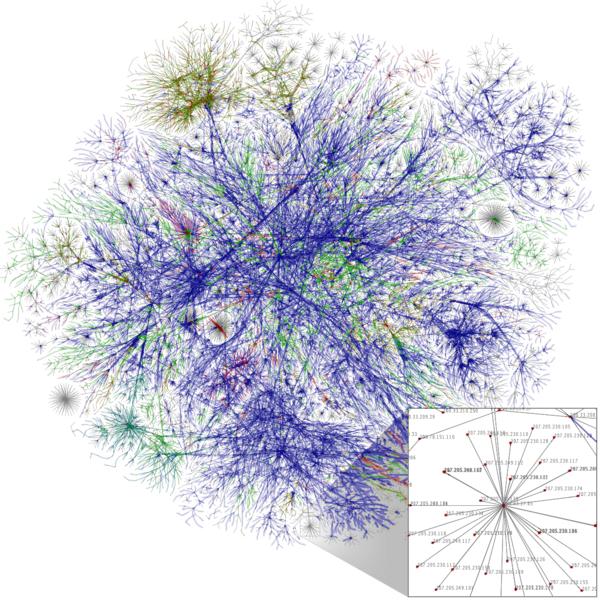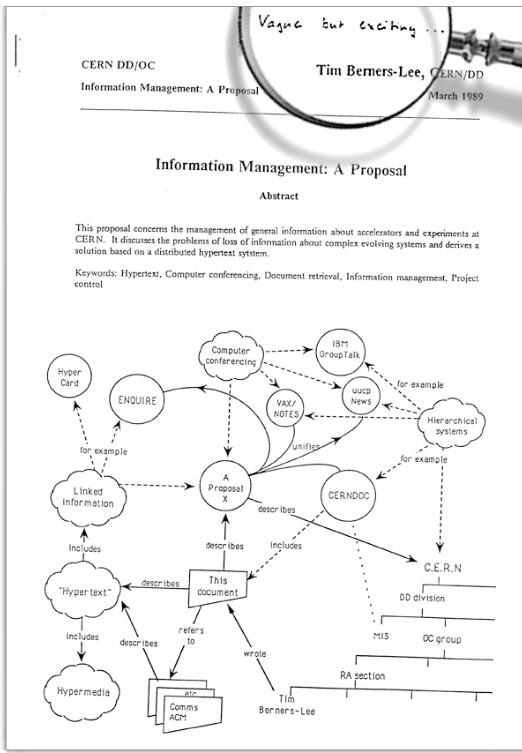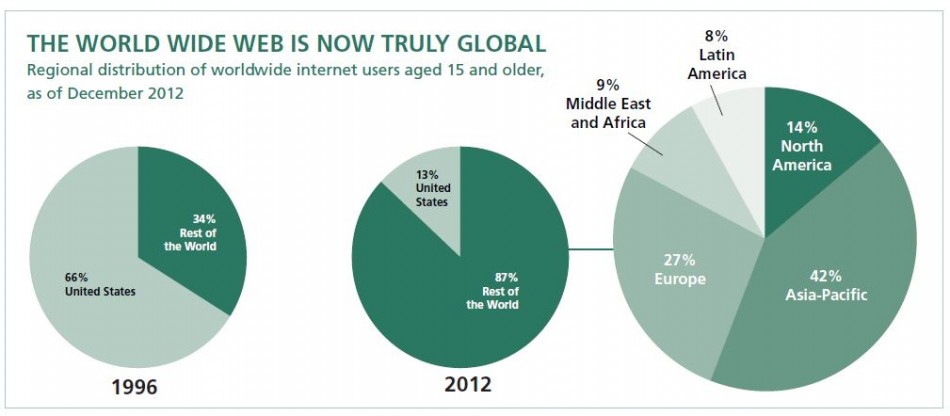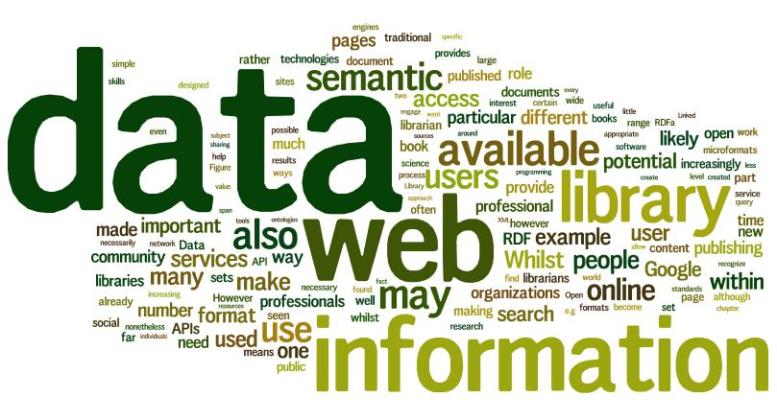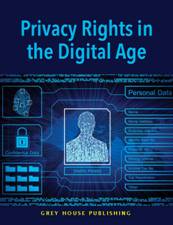World Wide Web: Difference between revisions
Siterunner (talk | contribs) No edit summary |
Siterunner (talk | contribs) No edit summary |
||
| (3 intermediate revisions by the same user not shown) | |||
| Line 4: | Line 4: | ||
* http://en.wikipedia.org/wiki/World_Wide_Web | |||
<big><big><big><big>Internet</big></big></big></big> | |||
''The origins of the Internet date back to the development of packet switching and research commissioned by the United States Department of Defense in the 1960s to enable time-sharing of computers. The primary precursor network, the ARPANET, initially served as a backbone for interconnection of regional academic and military networks in the 1970s. The funding of the National Science Foundation Network as a new backbone in the 1980s, as well as private funding for other commercial extensions, led to worldwide participation in the development of new networking technologies, and the merger of many networks. The linking of commercial networks and enterprises by the early 1990s marked the beginning of the transition to the modern Internet, and generated a sustained exponential growth as generations of institutional, personal, and mobile computers were connected to the network. Although the Internet was widely used by academia in the 1980s, commercialization incorporated its services and technologies into virtually every aspect of modern life.'' | |||
''The terms Internet and World Wide Web are often used interchangeably; it is common to speak of "going on the Internet" when using a web browser to view web pages. However, the World Wide Web or the Web is only one of a large number of Internet services, a collection of documents (web pages) and other web resources, linked by hyperlinks and URLs.'' | |||
* https://en.wikipedia.org/wiki/Internet | |||
:: <big><big>World Wide Web</big></big> | |||
:: * http://en.wikipedia.org/wiki/World_Wide_Web | |||
| Line 87: | Line 100: | ||
'''Looking back, years before, in another era there was Memex -- "As We May Think" --1945 / 1959 Memex II''' | |||
''The concept of the memex influenced the development of early hypertext systems, eventually leading to the creation of the World Wide Web, and personal knowledge base software.'' | ''The concept of the memex influenced the development of early hypertext systems, eventually leading to the creation of the World Wide Web, and personal knowledge base software.'' | ||
| Line 479: | Line 492: | ||
[[Category:Environmental Security]] | [[Category:Environmental Security]] | ||
[[Category:ESA]] | [[Category:ESA]] | ||
[[Category:Global Security]] | |||
[[Category:Green Marketing]] | [[Category:Green Marketing]] | ||
[[Category:Internet]] | [[Category:Internet]] | ||
Latest revision as of 19:50, 16 January 2022
Internet
The origins of the Internet date back to the development of packet switching and research commissioned by the United States Department of Defense in the 1960s to enable time-sharing of computers. The primary precursor network, the ARPANET, initially served as a backbone for interconnection of regional academic and military networks in the 1970s. The funding of the National Science Foundation Network as a new backbone in the 1980s, as well as private funding for other commercial extensions, led to worldwide participation in the development of new networking technologies, and the merger of many networks. The linking of commercial networks and enterprises by the early 1990s marked the beginning of the transition to the modern Internet, and generated a sustained exponential growth as generations of institutional, personal, and mobile computers were connected to the network. Although the Internet was widely used by academia in the 1980s, commercialization incorporated its services and technologies into virtually every aspect of modern life.
The terms Internet and World Wide Web are often used interchangeably; it is common to speak of "going on the Internet" when using a web browser to view web pages. However, the World Wide Web or the Web is only one of a large number of Internet services, a collection of documents (web pages) and other web resources, linked by hyperlinks and URLs.
- World Wide Web
WWW Origins-Foundation, est. by World Wide Web founder Tim Berners-Lee, "devoted to all people having access to the Web"
- WebFoundation.org -- "The Web Belongs to All of Us"
The Worldwide Web, Connecting Planet Earth
- Worldwide Web Consortium - http://www.w3.org/
- WWW Origins-Foundation, est. by World Wide Web founder Tim Berners-Lee, "devoted to all people having access to the Web"
- WebFoundation.org -- "The Web Belongs to All of Us"
History and Legacy of 'the Web'
Human-computer interaction: electromechanical devices; word processing; hypertext; hypermedia (e-books); the Internet (Arpanet); digital video; databanks..."
1962: "If a computer is capable of logic, then this clearly opens up the most exciting avenues"
Raymond Baxter witnessed the extraordinary power of a computer, in Machines Like Men
@BBCArchive
https://www.youtube.com/watch?v=xlUnSblYdlc
Six years later: July 1968
The Mother of All Demos, presented by Douglas Engelbart (Stanford / Menlo Park, Calif)
"The Mother of All Demos is a name given retrospectively to Douglas Engelbart's December 9, 1968, demonstration of experimental computer technologies that are now commonplace. The live demonstration featured the introduction of the computer mouse, video conferencing, teleconferencing, hypertext, word processing, hypermedia, object addressing and dynamic file linking, bootstrapping, and a collaborative real-time editor."
Some highlights:
5:00 - input: keyboard, mouse, extra-keyboard
31:30 - mouse
15:45 - todo list associated with a map
1:16:57 - hangouts + collaboratively editing of docs
@OldVideoPro
2017
A 16mm film of this demo was sent to the UK. At the time I was a lowly AV Technician at University College London. I ran the film in the New Chemistry Theatre for all the staff of the University of London Computer Centre and other interested parties. I watched fascinated. However, after 90 minutes, when it ended and the audience of senior London computing academics filed out, I heard several make comments such as "Interesting, but it will never catch on" and "What a waste of time." They had just seen the first ever Mouse, Hypertext, WP, video conferencing, and the Internet (Arpanet). I BELIEVED Doug Engelbart - they didn't! Here we are. years later, after the Xerox Star, Apple's Lisa and Mac and finally Windows. Amazing. As another commenter says, Doug should be as well known as Einstein - and FAR better than Steve Jobs or Bill Gates!
○
Looking back, years before, in another era there was Memex -- "As We May Think" --1945 / 1959 Memex II
The concept of the memex influenced the development of early hypertext systems, eventually leading to the creation of the World Wide Web, and personal knowledge base software.
In "As We May Think", Vannevar Bush describes a memex as an electromechanical device enabling individuals to develop and read a large self-contained research library, create and follow associative trails of links and personal annotations, and recall these trails at any time to share them with other researchers. This device would closely mimic the associative processes of the human mind, but it would be gifted with permanent recollection...
The pioneer of human–computer interaction Douglas Engelbart was inspired by Bush's proposal for a co-evolution between humans and machines. In a 1999 publication, Engelbart recollects that reading "As We May Think" in 1945 infected him with the idea of building a mechanism that could navigate and extend the pool of human knowledge. Around 1961, Engelbart re-read Bush's article, and from 1962 onward Engelbart developed a series of technical designs. Engelbart updated the Memex microfilm storage desk and thereby arrived at a pioneering vision for a personal computer connected to an electronic visual display and a mouse pointing device. In 1962, Engelbart sent Bush a draft article for comment, Bush never replied. The article was published in 1963 under the title "A Conceptual Framework for the Augmentation of Man's Intellect".
Links via GreenPolicy's Digital360 Network
- Alliance for Affordable Internet - http://a4ai.org/
- ArcGIS Open Data Platform - https://opendata.arcgis.com/about
- ASPI Cyber Policy - http://cyberpolicy.aspi.org.au/
- Center for Data Innovation - http://www.datainnovation.org/ - http://www.datainnovation.org/2014/04/the-economic-impact-of-open-data/
- Center for Democracy and Technology - https://cdt.org/
- (FB) https://www.facebook.com/CenDemTech
- (TW) https://twitter.com/CenDemTech
- (Wiki) http://en.wikipedia.org/wiki/Center_for_Democracy_and_Technology
- Citizen Lab - https://citizenlab.ca/
- Coalition for a Safer Web - https://coalitionsw.org/media/
- Code for America - http://codeforamerica.org/issues/openness/
- CommonFutures EU/Int'l - http://CommonFutures.eu/the-future-of-open-possibly-the-largest-open-network-in-the-world
- Creative Commons - http://CreativeCommons.org
- Data.gov, US Government open data - http://www.data.gov/
- 124K+ data sets as of 2015 - http://www.data.gov/metrics
- EcoInforma http://www.data.gov/ecosystems/ecoinforma/
- Dbpedia - http://dbpedia.org/About
- Decent Security - http://www.decentsecurity.com/blog/
- Digital Bill of Rights - http://jameslosey.com/post/79356515492/an-overview-of-calls-for-rights-or-principles-for-the
- Digital Citizens Alliance - https://www.digitalcitizensalliance.org/
- E Pluribus Unum, Dispatches on Open Government and Technology - http://e-pluribusunum.org/
- Electronic Frontier Foundation - https://www.eff.org/
- (RSS) https://www.eff.org/rss
- (Wiki) http://en.wikipedia.org/wiki/Electronic_Frontier_Foundation
- (Parker Higgins-EFF) https://twitter.com/xor
- (recommended by EFF)
- Electronic Privacy Information Center (EPIC) - https://www.epic.org/
- Energy and Environment Legislation Tracking Database (US) - http://NCSL.org/issues-research/energyhome/energy-environment-legislation-tracking-database.aspx
- eQualit.ie - https://equalit.ie/equalit-ie-manifesto/
- Advancing the International Bill of Human Rights - http://www.ohchr.org/Documents/Publications/Compilation1.1en.pdf
- Fact-Checking Projects
- http://www.poynter.org/2017/there-are-now-114-fact-checking-initiatives-in-47-countries/450477/
- http://www.poynter.org/2016/there-are-96-fact-checking-projects-in-37-countries-new-census-finds/396256/
- Beginning with PolitiFact, the original project at Poynter Institute in St. Petersburg, Florida - https://en.wikipedia.org/wiki/PolitiFact.com
- http://www.poynter.org/about-the-international-fact-checking-network/
- http://reporterslab.org/fact-checking/
- http://reporterslab.org/category/fact-checking/#article-1384
- http://reporterslab.org/global-fact-checking-up-50-percent/
- Fight for the Future - http://www.fightforthefuture.org/
- Free Software Foundation / GNU - http://www.fsf.org/ - https://www.gnu.org/home.en.html
- Freedom of Information Requests/Government Attic (US) - http://GovernmentAttic.org
- Freedom of the Press Foundation - https://freedom.press/ - https://freedom.press/about/board
- (TW) https://twitter.com/FreedomofPress
- (FreedomPress Organizations) https://freedom.press/organizations
- Freedom Online Coalition - http://www.freedomonline.ee/ - http://www.freedomonline.ee/about-us/Freedom-online-coalition
- Freenet - https://freenetproject.org/
- Fundar - http://fundar.org.mx/
- Future of the Internet (blog) - http://futureoftheinternet.org/blog/
- General Data Protection Regulation (GDPR) - https://en.wikipedia.org/wiki/General_Data_Protection_Regulation
- Github and Open Data update - https://github.com/project-open-data - http://m.theatlantic.com/technology/archive/2014/02/catch-my-diff-githubs-new-feature-means-big-things-for-open-data/283673/
- Global Digital Citizen Foundation - https://globaldigitalcitizen.org/
- Global Network Initiative - https://globalnetworkinitiative.org/
- Principles on Freedom of Expression and Privacy - https://globalnetworkinitiative.org//principles/index.php
- https://globalnetworkinitiative.org/sites/default/files/GNI_-_Principles_1_.pdf
- Global Open Data Initiative - http://GlobalOpenDataInitiative.org
- Global Partners - http://www.global-partners.co.uk/
- Global Project Against Hate and Extremism - https://www.inach.net/global-project-against-hate-and-extremism/
- Global Voices - http://globalvoicesonline.org/-/topics/digital-activism/
- GNU / Free Software Foundation - https://www.gnu.org/home.en.html - http://www.fsf.org/
- GNU Project - https://en.wikipedia.org/wiki/GNU_Project
- Government Accountability Project - http://www.whistleblower.org/
- Government Lab - http://thegovlab.org/
- GovFuturesLab - Reimagining governance for an age of planetary challenges and human responsibility
- (FB) https://Facebook.com/govfutures
- App4Gov (TW) https://Twitter.com/App4Gov
- GovLoop (US) training/social media/open gov - https://www.govloop.com/
- GovTrack - https://www.Govtrack.us/
- GreenPolicy360 / Digital Citizen - http://www.greenpolicy360.net/w/Category:Digital_Citizen
- Information Technology and Innovation Foundation - http://www.itif.org/
- Institute for the Future - http://iftf.org/govfutures
- Internet Archive - Wayback Machine - https://archive.org/
- Internet.org "Connecting the World" - https://info.internet.org/en/
- Internet Bill of Rights / Internet Rights and Principles Coalition - http://internetrightsandprinciples.org/site/
- Internet Freedom Festival (IFF)
- Internet Governance Project - http://www.internetgovernance.org/
- Internet Society - http://www.internetsociety.org/who-we-are/mission
- IT for Change (India) - http://www.itforchange.net/
- Linked Data - http://linkeddata.org/
- Mobile Commons - https://www.mobilecommons.com/about/
- Mozilla Foundation Webmaker Tools - https://webmaker.org/en-US/tools
- Muckrock News - https://www.muckrock.com/news/
- New Media Rights - http://www.newmediarights.org/
- News Integrity Initiative - https://www.journalism.cuny.edu/2017/04/announcing-the-new-integrity-initiative/
- Online Magna Carta - http://www.theguardian.com/technology/2014/mar/12/online-magna-carta-berners-lee-web [1]
- Open Access Publishing - http://en.wikipedia.org/wiki/Open_access
- Open Congress (U.S.) - https://www.opencongress.org/
- Open Data Institute UK-Int'l - http://TheODI.org/about-us - http://TheGuardian.com/public-leaders-network/2013/oct/22/open-data-institute-summit-gavin-starks
- Open Data movement_Wikipedia - http://en.wikipedia.org/wiki/Open_Data
- Open Data Nation - http://www.opendatanation.com/ ("Smart Cities and Small Businesses")
- Open Data Research Network - http://opendataresearch.org/
- http://opendataresearch.org/emergingimpacts
- http://opendataresearch.org/content/2014/646/towards-common-methods-assessing-open-data-workshop-report
- Open Data - World Bank - http://data.worldbank.org/
- OpenDemocracy - https://www.opendemocracy.net/about
- https://www.opendemocracy.net/digitaliberties
- https://www.opendemocracy.net/openglobalrights
- (TW) https://twitter.com/opendemocracy
- Open Government Initiative (US) - http://www.whitehouse.gov/open
- Open Government in Practice - https://openlibrary.org/books/OL24435672M/Open_Government
- Open Government Partnership - International - http://OpenGovPartnership.org
- Open Institute - http://openinstitute.com/
- Open Knowledge Foundation Lab - http://okfn.org/
- (Blog) PublicBodies.org - http://blog.okfn.org/2013/07/09/introducing-open-knowledge-foundation-labs/
- Open Rights Group - https://www.openrightsgroup.org/
- Open Science - http://opensciencefederation.com/
- Open Secrets/Center for Responsive Politics - http://www.opensecrets.org/
- Open Source @Wikipedia - https://en.wikipedia.org/wiki/Open_source
- Open Source Ecology - http://opensourceecology.org/ - http://opensourceecology.org/gvcs/
- Open Source Hardware (wiki) - http://en.wikipedia.org/wiki/Open_source_hardware
- Open Standards Principles (UK) - https://www.gov.uk/government/publications/open-standards-principles/open-standards-principles
- Open State Foundation - http://www.openstate.eu/
- Open Technology Institute/New America Foundation - http://newamerica.org/oti/
- OpenGov Foundation - http://OpenGovFoundation.org
- OpenGov Hub - https://twitter.com/OpenGovHub
- OpenMedia International - https://openmedia.org/
- OpenNet Initiative - http://cyber.law.harvard.edu/research/opennet
- Peer 2 Peer-P2P Foundation - http://p2pfoundation.net/
- Personal Democracy Forum/Media - https://personaldemocracy.com/
- Civic Hall - http://civichall.org/
- Piwik analytics - http://piwik.org/
- Privacy Rights in the Digital Age (Published 2016)
- Project on Government Oversight - http://www.pogo.org/
- PublicAgenda - http://PublicAgenda.org
- Public Resource Org ("Making Government Information More Accessible") - https://public.resource.org/
- RDF Standards - http://W3.org/RDF
- Reform Government Surveillance - https://www.reformgovernmentsurveillance.com/
- Research Data Sharing without Barriers - https://RD-Alliance.org
- Reset the Net - https://www.resetthenet.org/
- SafeGov - http://www.safegov.org/
- Save Internet Privacy - https://www.saveinternetprivacy.org
- Save the Internet (US) - http://www.savetheinternet.com/sti-home
- Schneier on Security - https://www.schneier.com/about.html
- Software Freedom Law Center - https://www.softwarefreedom.org/
- SpiderOak - https://spideroak.com/
- State Decoded - http://StateDecoded.com
- Sunlight Foundation - http://sunlightfoundation.com/
- (FB) https://www.facebook.com/sunlightfoundation
- (G+) https://plus.google.com/+sunlightfoundation/posts
- (TW) https://twitter.com/sunfoundation
- Measuring the Impact of Open Data
- Surveillance Studies Centre - http://www.sscqueens.org/ - http://www.surveillance-studies.net/
- The Forum on Information and Democracy - https://informationdemocracy.org/
- The Constituent (US) - https://The-Constituent.com
- Thoughtworks - http://www.thoughtworks.com/
- Truthiness Collaborative - https://www.annenberglab.com/projects/truthiness-collaborative
- UN/United Nations Promotion and protection of human rights and fundamental freedoms while countering terrorism - https://firstlook.org/theintercept/2014/10/15/un-investigator-report-condemns-mass-surveillance/
- US Gov-EPA Databases - http://Water.EPA.gov/aboutow/owow/data.cfm
- VYPR VPN - http://www.goldenfrog.com/vyprvpn
- Web We Want (World Wide Web Foundation) - http://webfoundation.org/2013/12/announcing-the-web-we-want/ - https://webwewant.org/
- WebTAP / Web Transparency & Accountability Project (Princeton University) - https://webtap.princeton.edu/
- Wikipedia
- https://en.wikipedia.org/wiki/Wikipedia
- https://en.wikipedia.org/wiki/MediaWiki
- https://en.wikipedia.org/wiki/Wikimedia_Foundation
- Jimmy Wales / Founder - https://en.wikipedia.org/wiki/Jimmy_Wales
- Wikiversity - https://en.wikiversity.org/wiki/Wikiversity:Main_Page
- World Summit on the Information Society +10/ - http://en.wikipedia.org/wiki/World_Summit_on_the_Information_Society
- Worldwide Web Consortium - http://www.w3.org/
- WWW Origins-Foundation, est. by World Wide Web founder Tim Berners-Lee, "devoted to all people having access to the Web"
- WebFoundation.org -- "The Web Belongs to All of Us"
○
- About Us
- Additional Website Resources - Linked Data - Green Best Practices
- Atmospheric Science
- Best Practices
- Citizen Science
- Climate Policy
- Ecology Studies
- Democratization of Space
- Digital Citizen
- Digital Rights
- Earth Imaging
- Earth Observations
- Earth Science
- EOS eco Operating System
- Economic Development
- Education
- Environmental Security
- ESA
- Global Security
- Green Marketing
- Internet
- IOT
- Media
- Mobile
- Mobile Internet
- Mobile Online
- Mobile Web
- NASA
- Netizen
- Networking
- NOAA
- Online Education
- Online Privacy
- Open Access
- Planet Citizens, Planet Scientists
- Privacy Rights
- World Wide Web
- Youth
